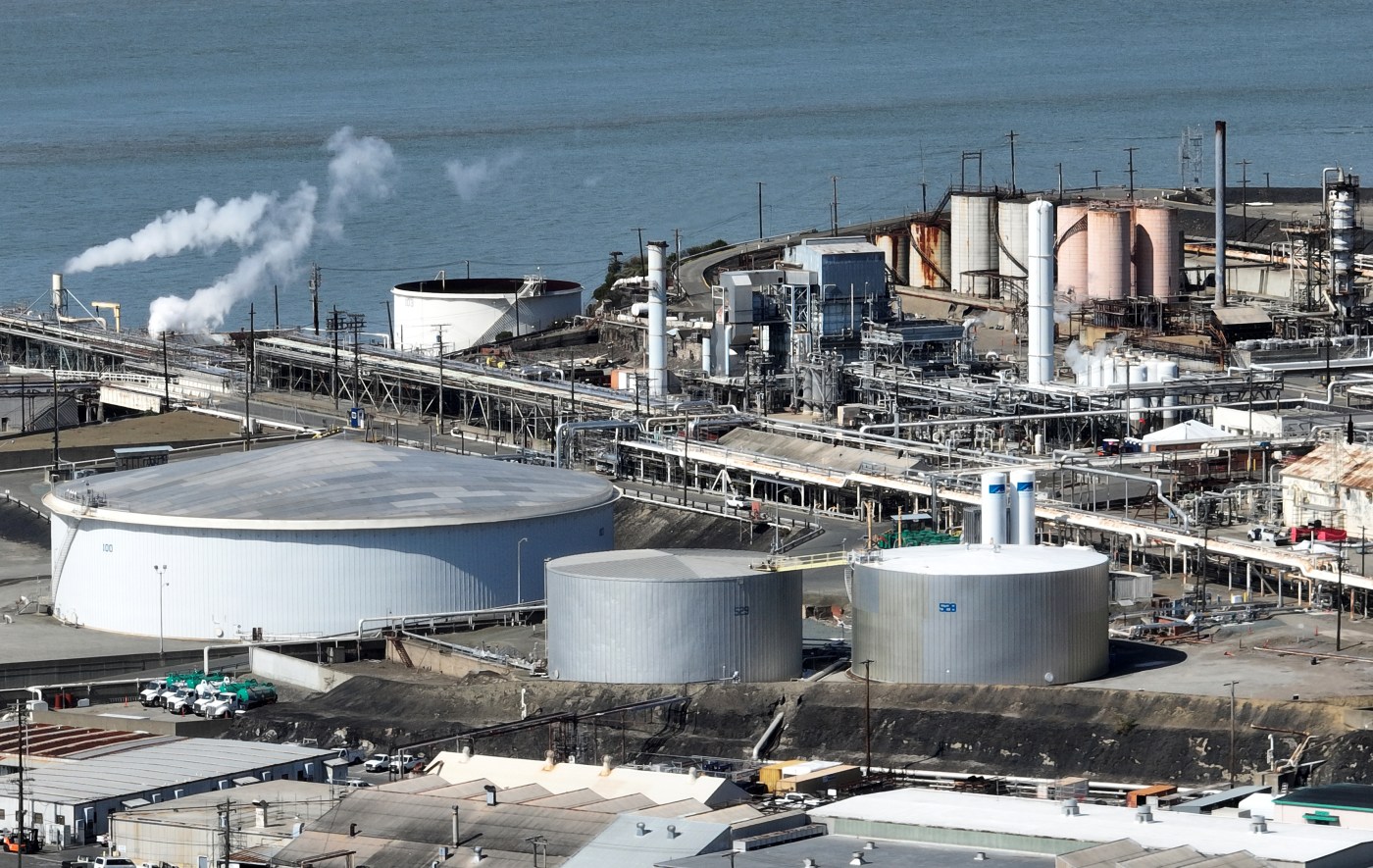
By Eliyahu Kamisher and Nathan Risser, Bloomberg
California’s largest inland oil pipeline is in danger of closing within months without state approval for a rate increase and other measures, a shutdown that would choke off some crude supplies to at least two San Francisco-area refiners.
Crimson Midstream LLC’s San Pablo Bay Pipeline that hauls oil from the Bakersfield area to Northern California refiners is losing $2 million a month, creating “severe financial distress” for the company, Robert Waldron, CEO of Crimson’s parent CorEngery Infrastructure Trust, wrote in a letter to Governor Gavin Newsom’s office this week.
RELATED: Last-minute bill aimed at boosting California oil production introduced
The pipeline’s fortunes have waned amid a “sudden and unexpected shift” of regional oil production to rival pipelines serving Los Angeles-area fuel makers, Waldron wrote. Crude pipelines are designed to pump certain quantities of oil and when volumes fall below the minimum ranges, the costs of operating them can soar.
Related Articles
Last-minute bill aimed at boosting California oil production introduced
California in talks to pay hundreds of millions to Valero to stave off Bay Area refinery shutdown
Elias: California must do better to make Big Oil pay for climate change
Trump’s 50% tariffs on India over Russian oil purchases take effect
A do-over for Newsom? California crafts power plays to tackle looming refinery shutdowns
The Western States Petroleum Association has been warning California lawmakers since last year that dwindling Central Valley oil production risked shuttering pipelines such as the San Pablo Bay conduit. Valero Energy Corp.’s Benicia refinery and PBF Energy Inc.’s Martinez plant, which account for roughly one-fifth of the state’s fuel-making capacity, are dependent on Central Valley crude for some of their supplies.
Any interruption in San Pablo Bay Pipeline shipments would likely force Bay Area refiners to resort to more imports of ocean-borne crude, Waldron warned. Crimson is seeking a 37% increase in the fees it can charge to crude shippers, a temporary $3.75-a-barrel tariff hike, and other measures.
“Unfortunately, Crimson is now facing severe financial distress,” Waldron wrote. “Without near-term relief, Crimson will likely be forced to shut down the SPB Pipeline this fall.”
California crude output has fallen by more than 70% in the past four decades as fields first tapped in the early 20th century began to run dry, competition increased from lower-cost sources, and some of the nation’s strictest environmental rules piled on costs. Newsom is seeking to make it easier for inland drillers to obtain permits and boost oil output, while further restricting offshore crude production.
The San Pablo Bay Pipeline is the larger of two conduits carrying crude to Northern California. The pipeline’s minimum, daily operating capacity is around 60,000 to 65,000 barrels, according to consultant Turner, Mason & Co. Waldron noted that a shutdown risks shifting 15,000 barrels of daily crude supplies to highways aboard tanker trucks, suggesting the pipe already is running significantly below capacity.
More stories like this are available on bloomberg.com
©2025 Bloomberg L.P.